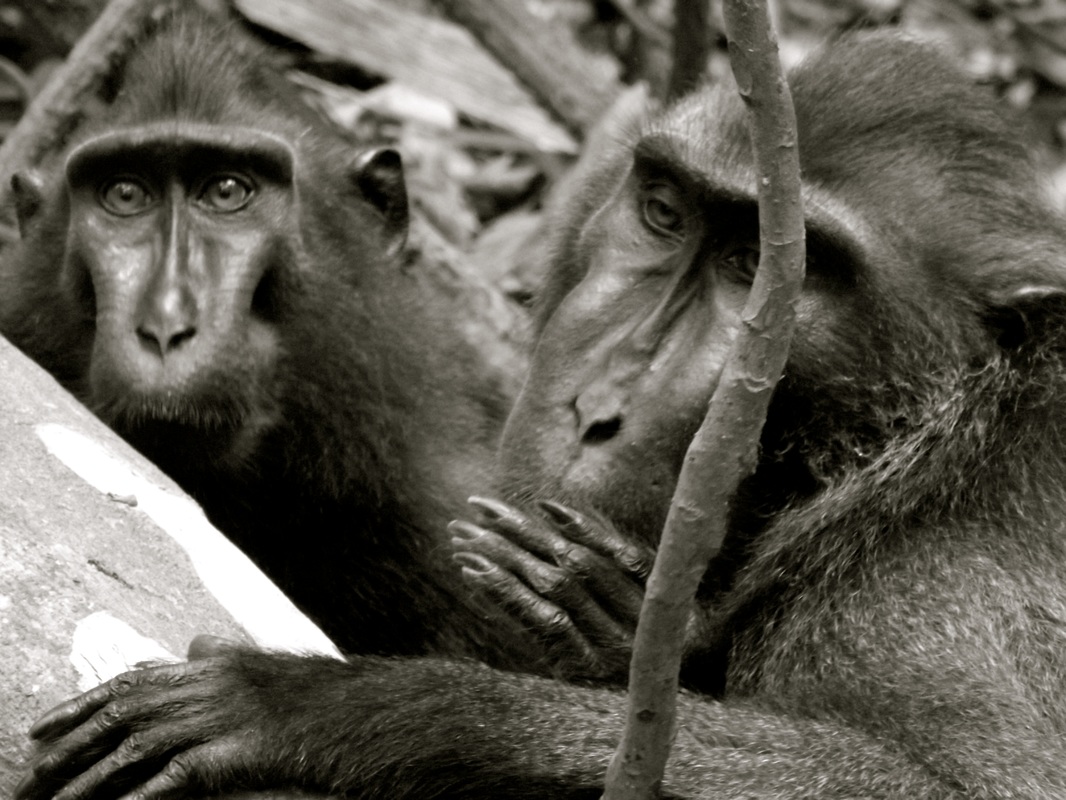Cecile Sarabian
Research Fellow, Institute for Advanced Study in Toulouse (former doctoral student & JSPS Postdoctoral Fellow)
Background
I got my Master in Eco-physiology and Ethology from the University of Strasbourg, France in 2014. My Master thesis focused on food processing and feces avoidance behaviors in relation to parasite infection in Japanese macaques of Koshima island, Japan. In 2015, I joined the section of Ecology & Conservation of KUPRI as a PhD student under the supervision of Associate Professor Andrew MacIntosh. So far, my PhD has led me to conduct research on parasite avoidance behaviors in chimpanzees, bonobos, mandrills, and long-tailed macaques at various places such as the Centre International de Recherches Médicales de Franceville in Gabon; as well as Lola ya Bonobo sanctuary and Wamba in the Democratic Republic of the Congo.
Selected Publications
7. Poirotte C*, Sarabian C*, Ngoubangoye B, MacIntosh AJJ**, Charpentier M** (In Press) Faecal avoidance differs across sexes but not with nematode infection risk in mandrills. Animal Behaviour
*,**: These authors contributed equally to this work
6. Sarabian C, Curtis V, McMullan R (2018) Evolution of pathogen and parasite avoidance behaviours. Philosophical Transactions of the Royal Society B; DOI: 10.1098/rstb.2017.0256
5. Sarabian C, Belais R, MacIntosh AJJ (2018) Feeding decisions under contamination risk in bonobos. Philosophical Transactions of the Royal Society B; DOI: 10.1098/rstb.2017.0195
4. Sarabian C, Ngoubangoye B, MacIntosh AJJ (2017) Avoidance of biological contaminants through sight, smell and touch in chimpanzees. Royal Society Open Science 4: 170968
3. Sarabian C (2017) Répartition géographique et éthologie de l'Ours. In Hoffmann-Schickel K, Le Roux P, Navet E Sous la peau de l'Ours, L'humanité et les ursidés : aspects techniques, zoologiques, psychologiques, symboliques, mythologiques et anthropologiques. Connaissances et Savoirs, Paris
2. Romano V, Duboscq J, Sarabian C, Thomas E, Sueur C, MacIntosh AJJ (2016) Modeling infection transmission in primate networks to predict centrality-based risk. American Journal of Primatology 78(3); DOI: 10.1002/ajp.22542
1. Sarabian C, MacIntosh AJJ (2015) Hygienic tendencies correlate with low geohelminth infection in free-ranging macaques. Biology Letters 11: 20150757
Contact
Primate Research Institute
41-2 Kanrin, Inuyama, Aichi
484-8506 Japan
+81(0)568-63-0234
Gallery




